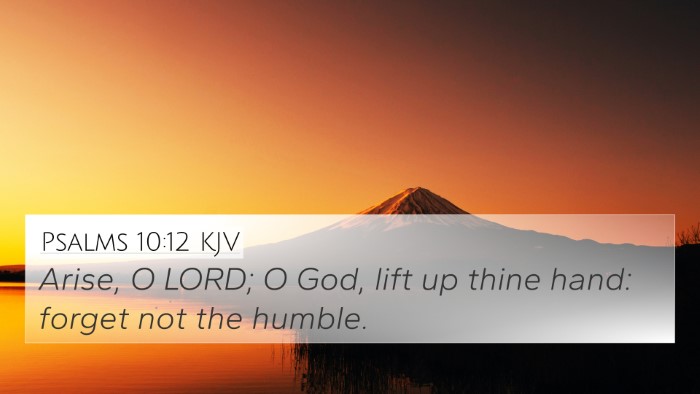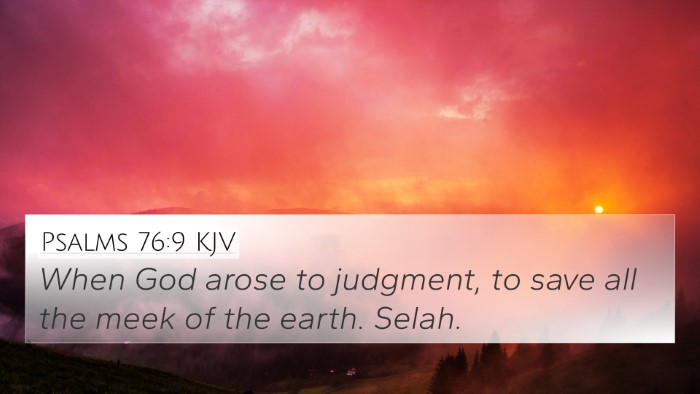This section features a detailed cross-reference designed to enrich your understanding of the Scriptures.
Below, you will find carefully selected verses that echo the themes and teachings related to Job 31:14 KJV. Click on any image to explore detailed analyses of related Bible verses and uncover deeper theological insights.
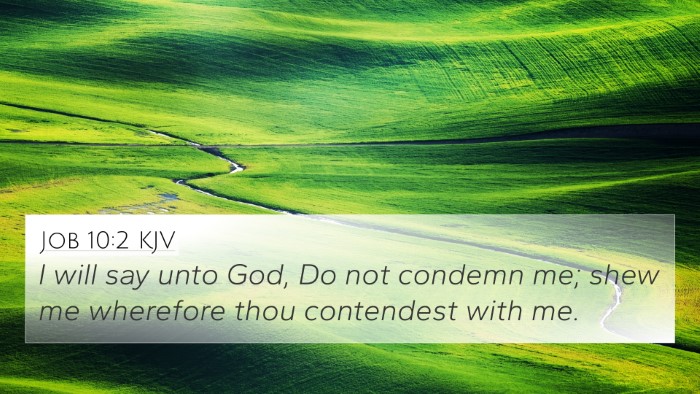 Job 10:2 (KJV) »
Job 10:2 (KJV) »
I will say unto God, Do not condemn me; shew me wherefore thou contendest with me.
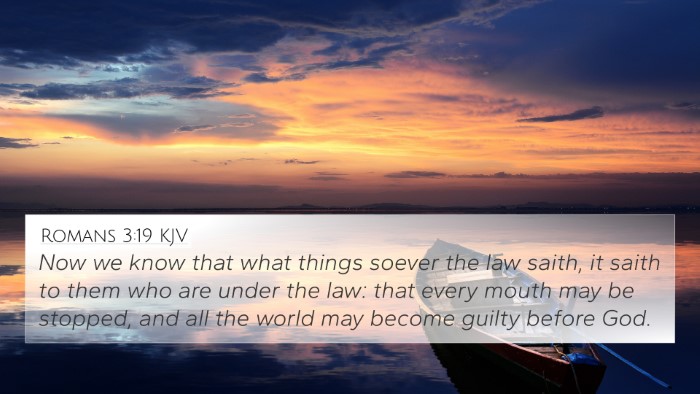 Romans 3:19 (KJV) »
Romans 3:19 (KJV) »
Now we know that what things soever the law saith, it saith to them who are under the law: that every mouth may be stopped, and all the world may become guilty before God.
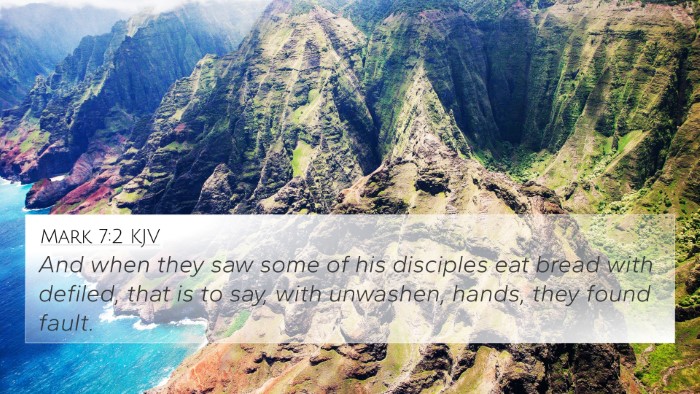 Mark 7:2 (KJV) »
Mark 7:2 (KJV) »
And when they saw some of his disciples eat bread with defiled, that is to say, with unwashen, hands, they found fault.
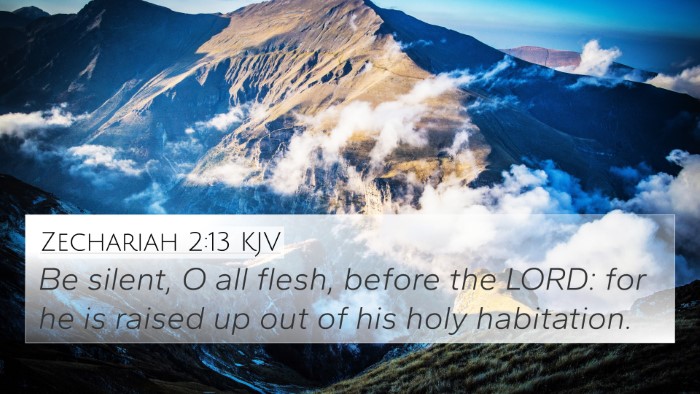 Zechariah 2:13 (KJV) »
Zechariah 2:13 (KJV) »
Be silent, O all flesh, before the LORD: for he is raised up out of his holy habitation.
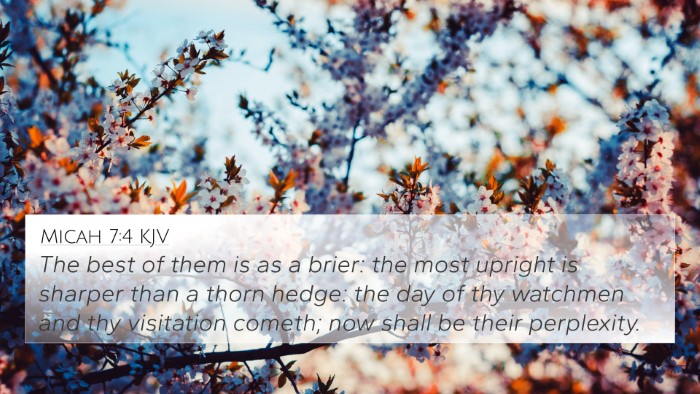 Micah 7:4 (KJV) »
Micah 7:4 (KJV) »
The best of them is as a brier: the most upright is sharper than a thorn hedge: the day of thy watchmen and thy visitation cometh; now shall be their perplexity.
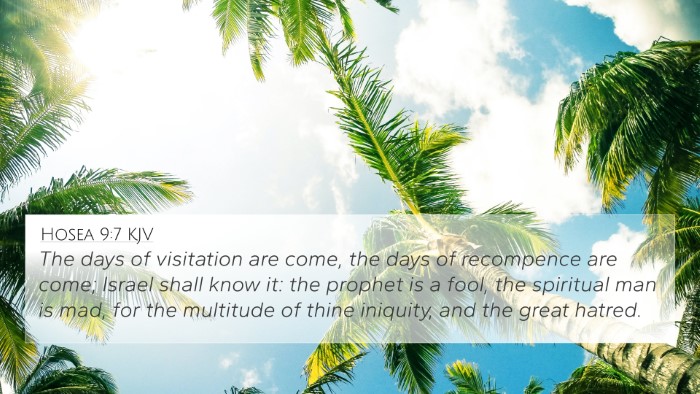 Hosea 9:7 (KJV) »
Hosea 9:7 (KJV) »
The days of visitation are come, the days of recompence are come; Israel shall know it: the prophet is a fool, the spiritual man is mad, for the multitude of thine iniquity, and the great hatred.
 Isaiah 10:3 (KJV) »
Isaiah 10:3 (KJV) »
And what will ye do in the day of visitation, and in the desolation which shall come from far? to whom will ye flee for help? and where will ye leave your glory?
 Psalms 7:6 (KJV) »
Psalms 7:6 (KJV) »
Arise, O LORD, in thine anger, lift up thyself because of the rage of mine enemies: and awake for me to the judgment that thou hast commanded.
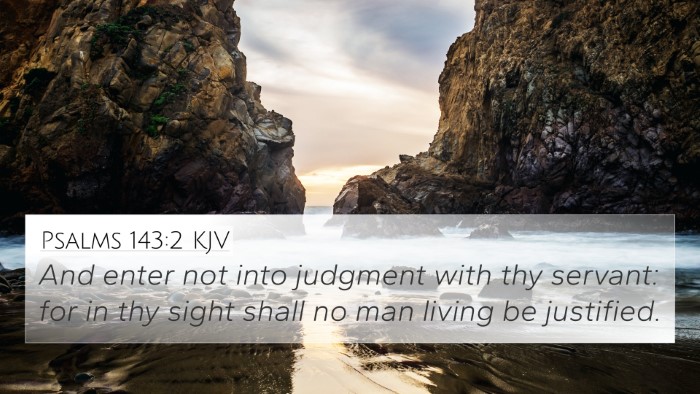 Psalms 143:2 (KJV) »
Psalms 143:2 (KJV) »
And enter not into judgment with thy servant: for in thy sight shall no man living be justified.
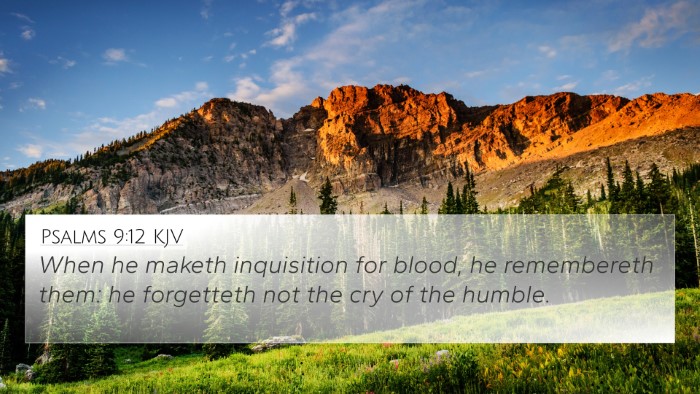 Psalms 9:12 (KJV) »
Psalms 9:12 (KJV) »
When he maketh inquisition for blood, he remembereth them: he forgetteth not the cry of the humble.
 Psalms 9:19 (KJV) »
Psalms 9:19 (KJV) »
Arise, O LORD; let not man prevail: let the heathen be judged in thy sight.
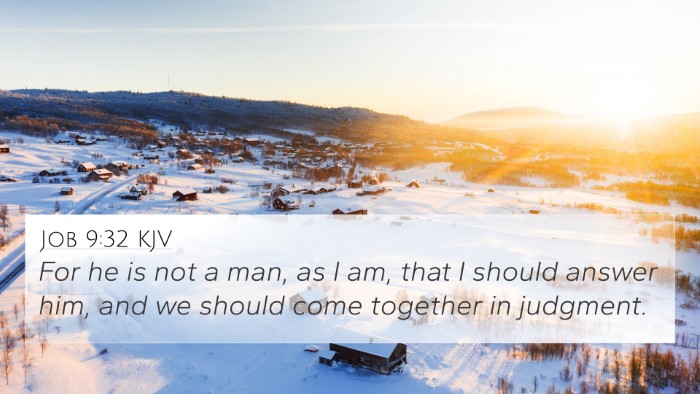 Job 9:32 (KJV) »
Job 9:32 (KJV) »
For he is not a man, as I am, that I should answer him, and we should come together in judgment.
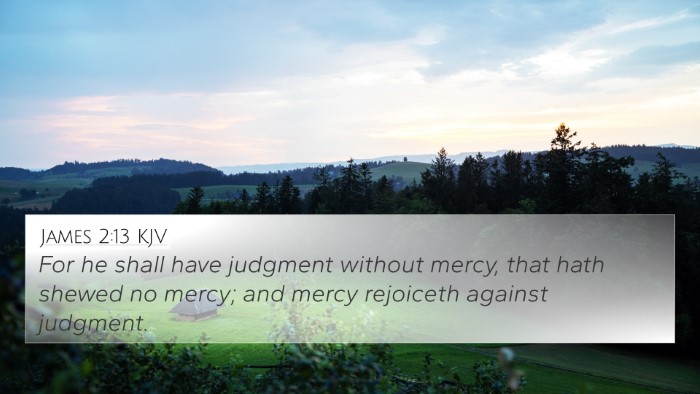 James 2:13 (KJV) »
James 2:13 (KJV) »
For he shall have judgment without mercy, that hath shewed no mercy; and mercy rejoiceth against judgment.










